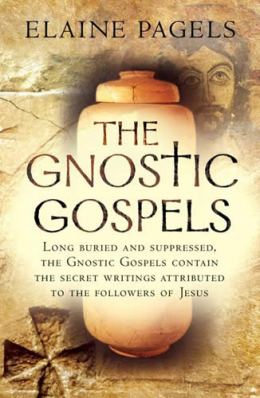
The ancient texts accidentally unearthed in 1945 at Nag Hammadi, Egypt, were a tremendous discovery. “For the first time,” Elaine Pagels writes in The Gnostic Gospels, “the heretics can speak for themselves.” They could speak, but Pagels, then a professor at Barnard, was the one who introduced them to the general public. Published in 1979, her book explores the tensions between Christian orthodoxy and Christian gnosticism (from the Greek gnosis,which, Pagels explains, means not “scientific or reflective knowledge” but “knowing through observation or experience”). The gnostic texts put forth wildly unorthodox (we say now) views concerning such basics as Jesus’ resurrection and the very nature of God. As Pagels shows, these writings from the early centuries C.E. “suggest that Christianity might have developed in very different directions — or that Christianity as we know it might not have survived at all.”
